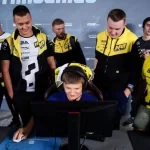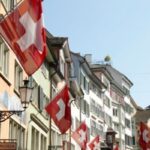
The German group, whose owner was dubbed the “sausage king” by the local media, is selling for 22 billion rubles. own business in Russia – agro-industrial corporation Don. The buyer is CP Foods from Thailand
The German sausage king will sell its Russian business for ₽22 billion
The German group Tönnies, whose owner was dubbed the “sausage king” by the local media, is selling for 22 billion rubles. own business in Russia – agro-industrial corporation Don. The buyer is CP Foods from Thailand
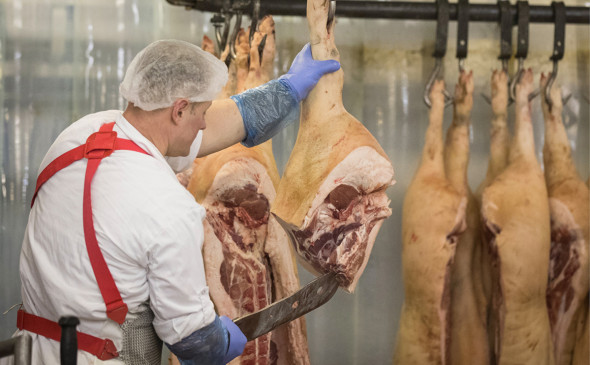
Thai Charoen Pokphand Foods (CP Foods) has announced the purchase of APK Don, a major Russian pork producer. A message about this was posted on the website of the Stock Exchange of Thailand.
Agro-industrial corporation Don, whose assets are located in the Voronezh and Belgorod regions, is engaged in business in the field of animal husbandry, crop production and the production of animal feed. The vertically integrated agricultural holding specializes in the production of pork. As a result of the transaction, the Russian subsidiary of CP Foods will become the owner of several legal entities that form an agro-industrial group, in particular, the Alekseevsky feed mill, Alekseevsky Bacon, Agro-Oskol, Donskoy Bacon, etc.
In 2020, the corporation, according to the National Union of Pig Breeders, took 11th place in the ranking of the largest Russian pork producers. APK Don produced 112.7 thousand tons of pork in live weight, it accounted for 2.3% of the industrial production of this type of meat in Russia. APK Don's revenue in 2020 according to RAS amounted to 10.4 billion rubles, operating profit – 1.6 billion rubles, according to CP Foods.
What is the seller known for?
APK Don is sold by the German family group Tönnies, founded in 1971 by Bernard Tönnies, who was soon joined by his brother Clemens. The latter was named sausage king in 2015 by WirtschaftsWoche; the moniker has haunted the band's co-owner ever since. Its website states that Tönnies account for about 50% of all German exports of meat products. Reported revenue in 2020 is over €7 billion.
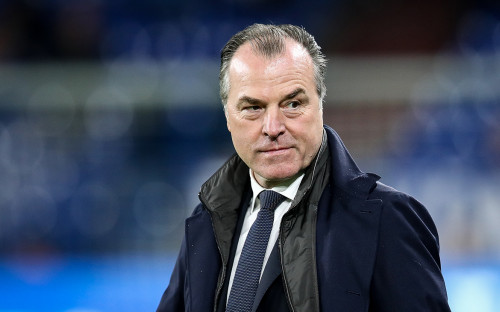
How to register an employee remotely
How exactly now a top manager should look for a job: four tips
Fast time: why companies started firing slow-witted managers
Personnel trolley problem: how to fire without harm to the company
SMS is no longer affordable: how sanctions have changed mobile mailings in Russia
More than 25% of newcomers leave the company almost immediately. How to keep them
How the relevance of digital assets and currencies is changing
Defective – on the way out: which managers will survive in the next two years
Last summer Clemens was at the center of a scandal. German politicians and prosecutors, as reported by Bloomberg, began checking against a businessman after the largest local outbreak of coronavirus in Germany occurred at his meat processing plant.Then, at the enterprise in the eda-Videnbryuk, 1.5 thousand people were infected, most were workers from Eastern Europe. Due to the outbreak, the authorities decided to close the plant, and the nephew of Clemens Tennis Robert demanded that his uncle quit.
Even football clubs criticized the Covid-19 outbreak in the production of Tennis. Against the background of the scandal, cooperation with his meat company was stopped by the Arminia Bielefeld club. The fans of another German football club, Schalke 04, whose supervisory board headed the and the title sponsor of which until 2022 is Gazprom, massively expressed protests and demanded the resignation of the co -owner. On June 30, Tennis left Schalke.
RBC sent a request to the press service.
What is the buyer known
CP Foods is a large global manufacturer of feed, pork, poultry meat and aquaculture products. In Russia, the group, whose headquarters are located in Bangkok, has been operating since 2006: then it bought a small feed factory in the Lukhovitsa near Moscow, and a year later-a pig-breeding enterprise and poultry farm to convert it to a pig-breeding complex.
At the end of 2013, CP Foods bought a control package of shares of the Norwegian group of Russia Baltic Pork Invest, which now controls in Russia five pig -breeding complexes in the Kaliningrad and Nizhny Novgorod regions.
In 2015, CP Foods acquired control bags of Russian poultry farms North and Army in the Leningrad Region. The company also invested in the construction of pig farms in the Moscow, Lipetsk, Kursk, Kaluga regions, and the pig -breeding complex is under construction in the Ryazan region.
In May 2021, CP Foods, as follows from its materials, agreed on the purchase of another asset in the Russian pig -breeding business – the Biltul company specializing in the breeding of pigs, owners of which were Sergey Aleinikov and Oleg Shamikhin. For this company, CP Foods promised to pay about 950 million rubles.
The National Union of Pigovodes evaluates the market share of CP Foods at 2.6% and puts pork from 129.2 thousand tons in ninth in the ranking of the largest manufacturers. From the report of the global CP Foods last year, it follows that 31% of its revenue falls on the home market 69% bring operations abroad. Russia is not among the largest markets (it took 24%in total and 13 more countries).
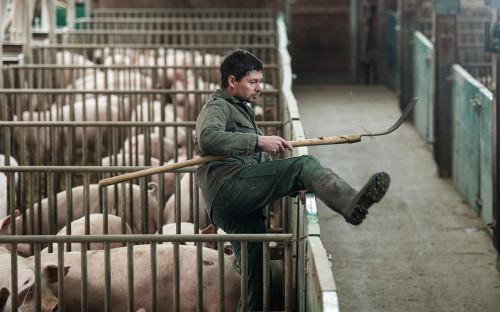
APK Don was estimated at 22 billion rubles, but, as the buyer clarifies, it may be subsequently revised. From the amount of the transaction, for example, the credit obligations of the APK Don can be deducted, the general director of the National Union of Pigovodov Yuri Kovalev indicates.
Declared 22 billion rubles. You can compare with the cost of public companies in the Russian agricultural industry. On Friday, August 27, the capitalization of the Cherkizovo group, the largest producer of meat products (primarily chicken) in the country with almost 129 billion rubles. Revenues and 17.4 billion rubles. adjusted operating profit, exceeded 103 billion rubles on the Moscow Exchange.The Cherkizovo group itself not so long ago, in April 2021, bought the Pit Product company from the Finnish Atria group: for two new meat processing plants with a capacity of 39 thousand tons of Cherkizovo products, as stated in its statements, it paid 2.8 billion rubles
Capitalization on the London Stock Exchange of the Rusagro group, which is one of the three largest pork producers, but earns primarily from the oil and fat and crop business, on Friday amounted to $1.48 billion, which corresponds to 109.5 billion rubles. at the exchange rate of the Central Bank on August 27. Rusagro's revenue in 2020 amounted to 159 billion rubles, operating profit – 23.8 billion rubles.
The Rostov-based agricultural holding Don Agro, which entered the Singapore Stock Exchange in February 2020 and whose last year's revenue grew to $30.9 million (about 2.3 billion rubles), and operating profit – up to $9.7 million (718 million rubles). ) capitalization reaches $57.1 million, or 4.2 billion rubles.
German Tönnies had long planned to build a vertically integrated pork production in Russia, but now it has changed its strategy and is leaving Russia, said Kovalev of the National Union of Pig Breeders. The Tönnies website does not list any other group assets in Russia. CP Foods, on the contrary, is expanding its presence in the Russian market: after the completion of the acquisition of APK Don, it may even become one of the five largest pork producers in Russia, Kovalev believes.
The fact that the food industry is facing inevitable consolidation was previously pointed out by Mikhail Burmistrov, general director of the INFOLine-Analytics agency. The past year has become, according to him, a large-scale challenge for food producers: consumption is declining, production costs are rising due to rising prices for raw materials, packaging, logistics and other factors, while it is difficult to translate costs into retail. Under such conditions, consolidation in the food industry looks like a reasonable response to the deterioration of the competitive environment, Burmistrov noted.
The Finnish Atria, from which Cherkizovo bought Pit Product, also left Russia in 2021. Difficulties in the Russian market for the company began after, against the backdrop of the devaluation of the ruble and rising prices due to the anti-Russian sanctions imposed by the EU and the US in 2014 and the response of the Russian food embargo, its sales fell. Until 2014, Atria accounted for 20% of meat products sales in St. Petersburg and 2% in Moscow. In conditions of economic instability, the demand of Russian consumers has shifted towards more budget products, and Atria, as its president in Russia Jarmo Lindholm explained, is not a very cheap manufacturer.
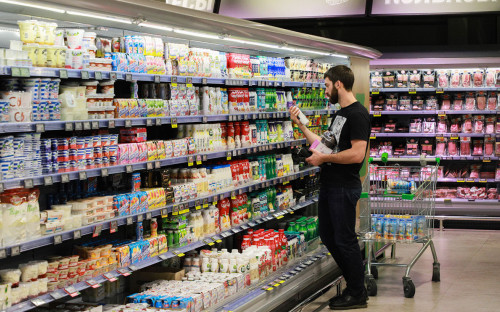
This year, after 29 years of operation, the Russian market also left the yogurt manufacturer Fruttis and Nezhny, the Dutch FrieslandCampina. The share of this company, according to the estimates of the analytical company NEO Center, accounted for about 2.8% of the Russian market for yogurt and fermented milk products. The German Ehrmann decided to acquire the Russian assets of FrieslandCampina – for how much, the parties did not disclose.The partner of NEO Center Inna Golfand Russian business FrieslandCampina estimated at about 6.5 billion rubles, and Burmistrov at 4–4.5 billion rubles.

